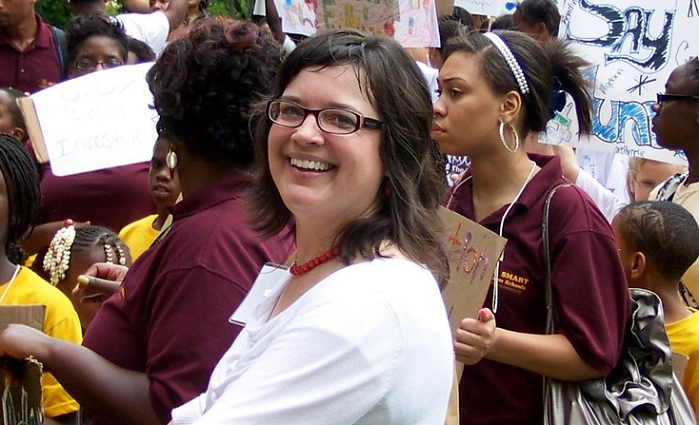By Peter Rosenberger author of 7 Caregiver Landmines and How You Can Avoid Them

(Available in Kindle and Paperback from Amazon) Peter Rosenberger hosts a radio program for family caregivers broadcast weekly from Nashville, TN on more than 200 stations. He has served as a caregiver for his wife Gracie, who has lived with severe disabilities for more than 30 years.
https://www.youtube.com/watch?v=zete6PeZozA
https://www.youtube.com/watch?v=FKxgyymMy4c
“Walking into Waffle House for breakfast, I held the door for two men. The younger man awkwardly helped his older companion with a walker and oxygen tank. No stranger to these things myself, I waited for several moments while nodding to the younger man. Mustering a sad smile, he expressed his gratitude for my patience.
As they slowly exited, I stepped in—only to be stopped by one of the longtime servers. “Peter, go out there and talk to that young man! His name is Randy, and I ain’t serving you breakfast ‘til you do,” she stated forcefully.
Decades of Waffle House visits with her taught me that disobedience usually involved a tongue-lashing. And, she really wouldn’t serve me until I talked with him.
Dutifully returning to the parking lot, I approached Randy, stuck my hand out and said, “I was told to come out here and talk with you—and Judy won’t serve me breakfast until I do. What’s going on?”
Randy’s eyes instantly filled with tears while sharing that this was their last breakfast out before hospice came that afternoon for his partner. Listening, I understood why Judy sent me back to the parking lot.
I speak fluent caregiver.
Randy added, “We’ve been together for 24 years, and I am just so upset. I don’t know what to do. I’m afraid I’ll go into my room and cry—and won’t be able to stop.”
Chatting for a while, as Randy’s companion quietly sat in the car with the engine running, I offered things learned from a lifetime of caregiving for my wife who lives with severe disabilities. Giving Randy my card and sharing he could call anytime, I prayed with him, hugged him, and watched him breathe a bit easier. Returning to the restaurant, Judy, with brimming eyes, nodded her thanks and served me breakfast.
Strengthening and encouraging my fellow caregivers serves as one of my deepest passions. I understand the brutality of the journey in ways few do. I also understand that the caregiving burden borne in the gay community is all too often compounded by judgment from people of faith. People who share my faith.
Caregiving respects no sexual preference, creed, politics, religion, or race. The harshness of caregiving saves all its assaults…to wage on the bonds of love. In the face of a chronic illness or disability, that love isn’t sexual or about sexual orientation. The love compelling one person to put themselves between a vulnerable loved one and even worse disaster—is something far different and worthy of respect.
Suffering and sorrow tend to put differences into perspective. The ministry of grace vividly displayed from the cross of Christ, can flow from us without this incessant need to fix, change, or dispute those who live differently.
In that parking lot, Randy and I were not gay versus straight. Nor were our doctrines and creeds discussed. While I remain devoutly evangelical with deep convictions, I never asked Randy’s beliefs. I just saw a fellow caregiver grieving as he ministered to a suffering loved one. Randy and I have that in common.
Caregivers struggle. They deserve care—not judgment for their fears, mistakes, or even their lifestyle. No one has ever argued me into a relationship. But there are those who loved me into one.
When the AIDS epidemic crashed upon society, all too many in the gay community were shunned. In the process, a vast number suffered with a horrific disease without the comfort of Christian ministry. That tragedy can’t be undone. Yet, that same community stands in need now, as they grieve while caring for aging and disabled loved ones.
Acceptance is not agreement. In order to care for someone, one is not bound to condone a lifestyle operating in contrast to Scripture. Yet, ministering hands reached into my grief and trauma to help me get to safer ground. I would be a poor steward of that help …that grace …if I didn’t offer it to others as they journey down the heartbreaking path of a caregiver.
While I’ve learned to speak fluent “caregiver,” it’s my Savior’s native tongue.”





:no_upscale()/cdn.vox-cdn.com/uploads/chorus_asset/file/12693579/IMG_0036.JPG)



 Priceton.org
Priceton.org










 My Canadian cousin reported this in her Christmas letter. I didn’t know there was such a horse and this was reported in Bloodhorse magazine.
My Canadian cousin reported this in her Christmas letter. I didn’t know there was such a horse and this was reported in Bloodhorse magazine. 


















